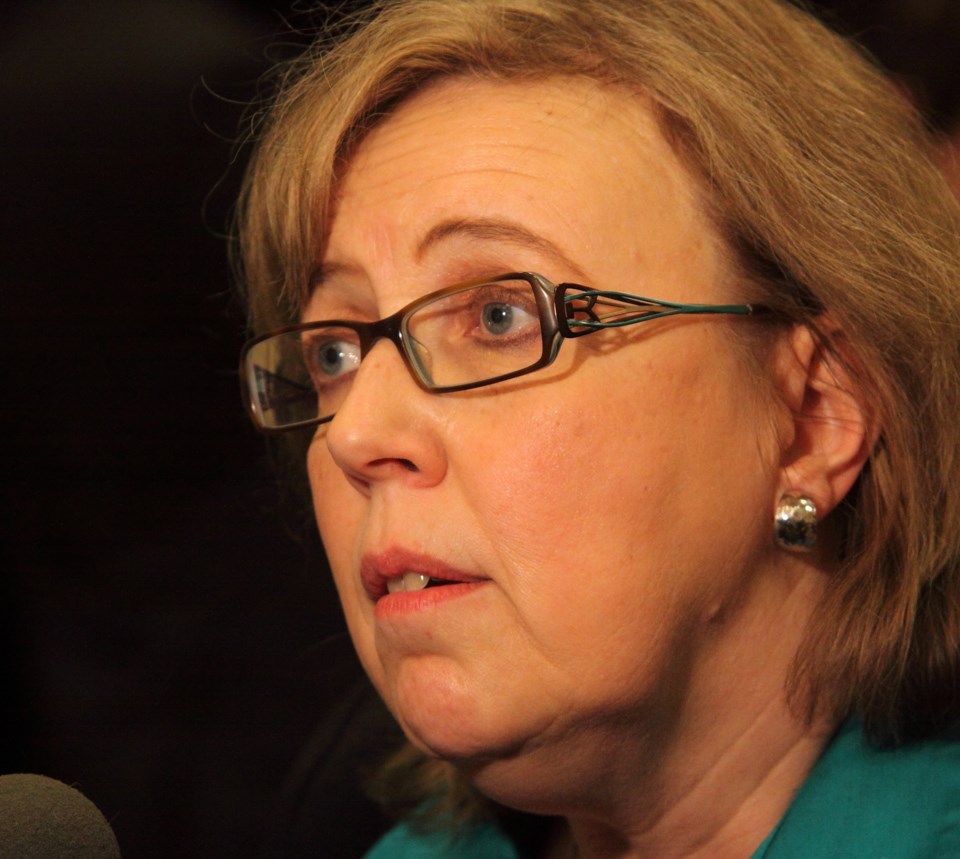After more than 13 years, Canada’s longest-serving national party leader has stepped down. It’s fair to wonder how her tenure will look 10, 20, or 100 years in the future.
The positives are obvious: under Elizabeth May’s leadership, the Green Party became a real national party. Perhaps not quite on par with the Liberals, Conservatives, and NDP – but certainly head, shoulders, and torso above the Christian Heritage and People’s Parties of the world, and that happened almost entirely due to her efforts.
May enjoys enormous respect in Ottawa, and notably, among the national media – although this diminished noticeably in the last campaign. Over the years, she won a lot of recognition, including Parliamentarian of the Year, Hardest Working MP, and was one of Newsweek’s “most influential women” – not of Canada, but the world.
And yet.
The signature problem with May’s leadership was she was never able to translate all those plaudits into actual support on the ground.
In terms of national support, her high water mark was her first election in 2008, when the party earned 6.8%. In fact, in the 2011 and 2015 elections, the party’s total votes and percentage were actually lower than in 2004 and 2006, under previous leader Jim Harris. (I double checked, because it seemed like an error to me, too.)
The difference between her and Harris was May managed to secure and defend a beachhead, turning Saanich-Gulf Islands into a safe Green fiefdom. Considering May was originally something of a parachute candidate, this was a remarkable accomplishment.
One could argue May played the game very well. She understood that national legitimacy could only happen with a seat in Parliament. To get there, May had to turn the Greens into a national organization in support and defence of her stronghold – even if it meant occasionally bending the rules, and then being flabbergasted when another party – the NDP – also got their hands dirty.
Much of May’s tenure will not stand up to close scrutiny. She struggled to rid her party of embarrassing candidates, a problem for all modern leaders. In real time, she mostly got a pass for some of her own foibles, including some hand-wringing about WiFi in schools, and yes, that very odd moment at the 2015 Press Gallery dinner. And for all her celebration as a great Parliamentarian, it’s hard to point to something specific she changed or improved there; despite all her efforts, the word “fart” is still parliamentary.
That’s not so much a comment on her, as the outsize attention she was often given by the national media – how much change can a lone MP reasonably be expected to effect in Ottawa?
I suspect the real reason she resigned today is simple: in an election campaign marked by thousands of people marching in climate strikes, she simply couldn’t convince more than a few isolated pockets that her party was the answer. There will probably never be a better opportunity, and it passed by.
Just before the campaign, May famously offered Jody Wilson-Raybould the keys to the Green kingdom. Not only was she rejected, but May still campaigned on Wilson-Raybould’s behalf – against her own local Green candidate.
It was something of a Rorschach test on how one viewed May. To her defenders, it was just another example of Doing Politics Differently, a sign of her disdain for “traditional” thinking and tactics.
To others – and I confess myself among these – this was unfathomable, and looked more like an impulsive leader who hadn’t quite thought things through. If she wanted Wilson-Raybould back in Ottawa, why run a candidate there at all? The Green candidate, whose name is Louise Boutin, only received 4.99%, and as such will not be receiving back her deposit from Elections Canada. She probably would have appreciated more support from her leader.
In the end, your opinion of May’s tenure will ultimately depend on whether you focus on what she did, or what she couldn’t do. She built a national party from the ground floor – which is almost impossible – but couldn’t build it any higher than said ground floor.
Did she fail because she couldn’t turn all the attention into even seven per cent of the vote – or was she a success, managing to insert herself into the national agenda despite it?
As with many things in politics, it depends on your point of view.
SWIM ON:
- George Affleck and Jody Vance pondered May's future in the most recent UnSpun.
- Blair King wasn't impressed with the 2019 Green Party platform.
- Maclean Kay's election night prediction, verbatim: The Greens are more or less guaranteed to keep May’s fiefdom, seem comfortable in Nanaimo-Ladysmith, are legitimately competitive in two or three more Vancouver Island seats, and might conceivably surprise in a riding here and there with a four- or five-way race. Beyond that, there be dragons. You have to squint awfully hard to see an outcome significantly better or worse than three seats.



